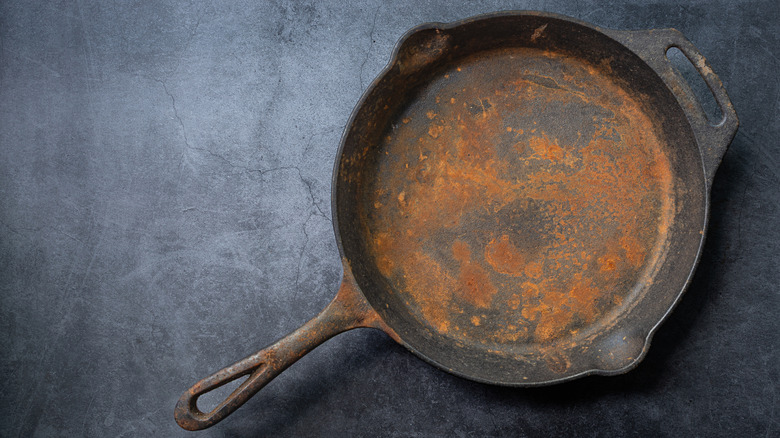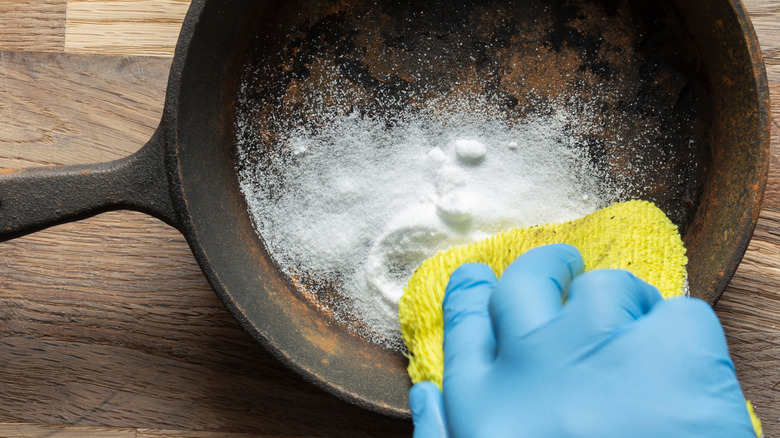The Root Vegetable That Doubles As A Rust-Remover For Pots And Pans
It happens to the best of us: you forget to fully wipe all the water off your cast-iron pan after washing it, or accidentally leave it at the bottom of the sink to clean tomorrow. While a little slip-up here and there won't destroy your pan, creating a habit of leaving your cast-iron damp can inevitably lead to its number-one enemy: rust. Beyond being unsafe to cook on, rust signals that your hard-earned seasoning layer is gone — a pan mistake that ruins steak crusts and causes eggs to stick.
Luckily, you don't need fancy cleaners or harsh chemicals to fix it; you just need a potato. Yes, the same humble spud that you use for crispy homemade fries or a classic potato salad. Simply slice one in half, dip the cut end into baking soda or dish soap, and use it like a scrub brush on the rusty spots. The potato's oxalic acid works to dissolve rust, while baking soda adds gentle abrasiveness and alkalinity to lift it away. For tougher patches, sprinkle on coarse salt before scrubbing for extra grit. Once the rust is off, give your pan a good rinse to wash away any residue, then dry it thoroughly. To rebuild its non-stick shield, rub on a thin, even layer of cooking oil and place the pan upside down in the oven. Bake at 450 to 500 degrees Fahrenheit to lock in your non-stick barrier and ensure you won't be battling rust again anytime soon.
Other pantry fixes for rust
While the potato trick is a surprisingly effective way to tackle rust, it's far from the only kitchen staple that doubles as a cleaning tool. For example, a water and vinegar soak is a great way to get rid of rust spots. The natural acidity of vinegar helps dissolve rust, though it works best on lighter cases and should be followed by a thorough rinse and re-seasoning.
Another pantry staple combo that easily cleans rust from cast iron skillets: lemon juice and baking soda. The citrus adds extra acidity, while the baking soda brings mild abrasiveness that lifts away rust without gouging your pan. Believe it or not, even cola can help in a pinch, thanks to its phosphoric acid content.
And, of course, the best way to deal with rust is not allowing it to set in the first place. Rust only takes hold when moisture lingers, so always dry your cast iron thoroughly (never leave it to air-dry). Follow up with a light coat of a highly unsaturated oil — like grapeseed, avocado, or flaxseed — rubbing it in and wiping away the excess. That thin, even layer not only keeps rust at bay, but also builds the nonstick seasoning that makes cast iron a staple for cooking.


